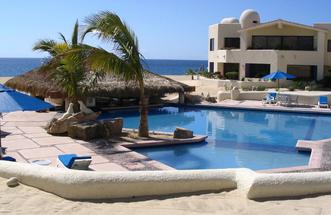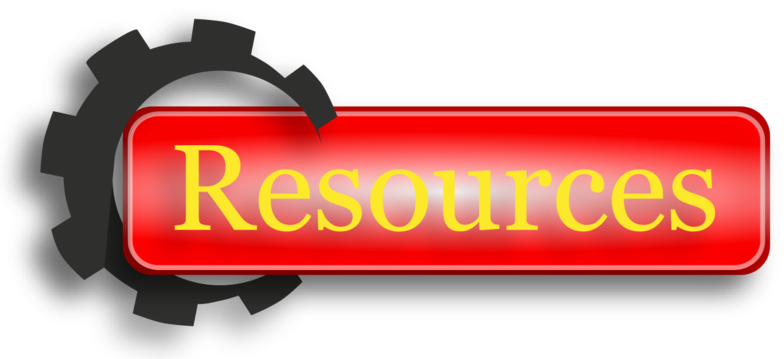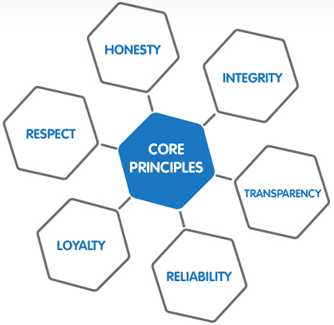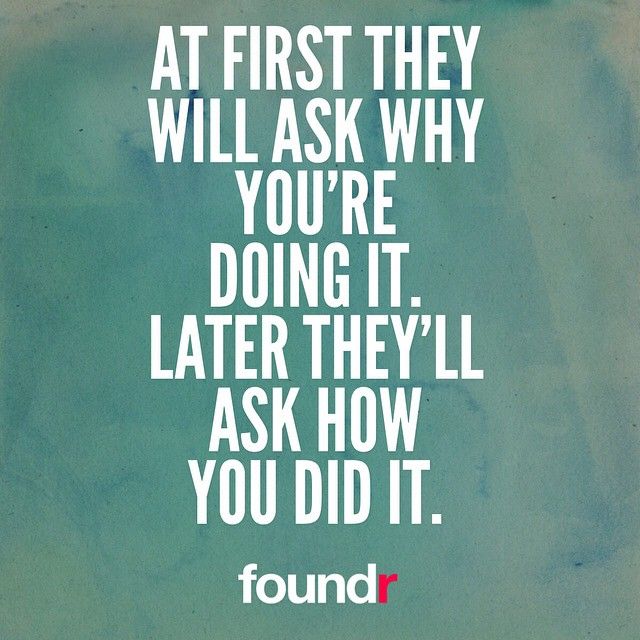MillionairesResources.com
REAL ESTATE
"WEALTH RESOURCES TO HELP YOU BECOME A MILLIONAIRE IN ANY INDUSTRY"
Our Blog and website is designed to provide accurate and authoritative information in regard to the subject matter covered. It is presented with the understanding that the publisher of this website and/or blog is not engaged in rendering legal, accounting, or other professional service. If legal advice or other expert assistance is required, the services of a competent professional should be sought. — From a Declaration of Principles jointly adopted by a committee of the American Bar Association and a committee of publishers and associations.
Think Like a Millionaire: How to Invest in Real Estate
By Lucas M Thomas
Many people fail to see that skills fade, but assets are forever.
They don't know their entire financial education in their lives is completely WRONG!
Too many people believe that a good job, good skills, and a positive attitude will make them great wealth. The problem is that it just doesn't work that way. People who make an hourly wage and an annual salary cannot build wealth. This is because their money doesn't work for them, and instead they work for their money. This idea keeps them from understanding that the only way to build wealth is to invest in multiple sources of income that you don't have to work for, but instead build yourself or purchase from someone else.
Another misconception of multiple sources of income and passive income is that people assume government and financial institutions offerings such as the stock market, CD's, and many other financial instruments are passive income. Most of the time however, unless it is a note or bond that pays you regular interest. It is not actually passive income or a stream of income. As a stream of income or passive income is income that you make every day, every month, and every year continuously as cashflow. Stocks and the like only make you money on the sale and never anything in the meantime. Meaning they don't ever actually cashflow. For example, it is the same as purchasing a piece of fine art and hoping that it appreciates the longer you hold onto it. Which is risky and locks your money up from better uses.
Real Estate as an Investment
Real Estate is the King when it comes to creating wealth for people. No other offering has the traits and abilities like real estate does. It is constantly appreciating and gaining value. It is always in demand because people need a place to live. And most important of all, it is a real asset that isn't going anywhere soon. Allowing you to borrow against it as collateral and even to write off all expenses and costs associated off on your taxes. Now let's not wait a moment longer to get into Real Estate as an Investment.
Real Estate You Can Buy as Investments
There is so many ways to invest in real estate and the major differences comes to how much capital you will need to put down to purchase them. This could be as little as $40,000 -$50,000 to buy a condo outright, to only $10,000+ to purchase a $100,000 single family home, or to as much as $20,000-$30,000 to purchase a multifamily home (2-4 units). All of which are Residential and can be easily financed.
Once you get past 4 units, small office buildings, and industrial properties. You're going into commercial territory and have a lot more hoops to jump through as well as have to start working with commercial lending which can require sizable amounts of capital before they will lend. In the rear, is my personal favorite of mobile homes and parks. Which are hard to sell, but can cashflow in all sorts of amazing ways from lending on the mobiles themselves to charging them for renting the use of the land. All of which is taxed as land which is the cheapest tax rate you can have on property.
Condos/Flats - Condos and flats are some of the best to buy for cashflow as they give the best cap rates. The only issue comes on the resale as many can be hard to finance as an investment property, preventing a large portion of the population from being able to purchase them.
Single-Family Homes - Single-family homes are easy to rent, easy to sell, and easy to finance.
Duplexes/Triplexes/Quads - Small multifamily properties (2-4 units). These property types combine the financing and easy purchasing benefits of a single-family home with the cashflow benefits and less competition found in larger investments.
Small Apartments - Small apartment buildings are made up of between 5-50 units, they can make great cashflow, but can be very illiquid on the resale.
Small Commercial Office Space - Buying small commercial buildings and renting out office space to business professionals.
Industrial Properties- Manufacturing, warehouses, distribution centers, etc.
Mobile Homes - Inexpensive way to enter the world of real estate investing and can also experience significant cashflow.
Mobile Home Parks - The entire park in which mobile homes are situated on can also be bought and sold. Rent the individual lots to mobile home owners, and as well as have corporately owned and leased ones.
Strategies in Finding Investment Properties
Just as there are a million ways to skin a cat, there is a million ways to find properties for investment. Of the many ways to find the properties for investment. The most common ways are to find the owner directly and give them a cash offer, to find properties that are owned by a lender or bank that they want to get rid of at a discount, or purchase a lien on the property so you can foreclose on the property yourself.
Lease Options - Buying the property and "renting" it with the legal right to buy it later.
For Sale By Owners (FSBO) - Private owners sell their property themselves with a sign or newspaper advertisement, they may want to sell their properties at a discount to avoid paying a realtor
REO's - Foreclosed Property owned by banks can be bought under market if the demand isn't too high
Auction at the Courthouse Steps - During the process of foreclosure, a home is brought to the courthouse steps to be sold to the highest bidder.
Buying in Pre-foreclosure - Sellers on the brink of losing their home can be very motivated to sell their home and save their credit and their lives
Short Sales - A bank will often take less than the loan amount on a property to save from the hassle and costs of foreclosing and reselling.
Tax Liens - When homeowner's refuse to pay their taxes, the government can foreclose and resell the property.
HUD Foreclosures - When a US government ensured loan is foreclosed on, it often becomes the property of the department of Housing and Urban Development.
VA Foreclosures - Similar to the HUD foreclosures, the US Department of Veteran's Affairs sells their homes as well after foreclosing on one of their insured properties
Strategies in Buying, Renting, and Selling Properties:
When you finally have the property in your grasp, there are many techniques you can use to maximize your return. Some properties are great for buy n' holding. Meaning you buy them for cashflow, but are expecting to also make a sizable return on the resale due to appreciation. Next up is Fixing N' Flip/Hold, which is finding properties undervalue and fixing them up to either hold onto for cashflow or to sell immediately for instant profit. Then there is Turn-key-Investing, this is where you find the property, turn it into a profitable cashflow and sell it as a source of income to a big fish investor. For Big Commercial, there is NNN leasing that entails having the company renting the property takes care of all the trimmings of the property and pays you for leasing the space. Another
Buy N' Hold strategy that can make decent money is to turn your Buy N' Hold property into a Vacation Rental and charge 3x as much than a normal lease.
Then there is hard money lending, where you finance others in their fix n' flips, buy n' holds, or primary residence.
Buy-N-Hold - Buy real estate, rent it, and hold it until the market is up and a great buyer comes along
Fix-N-Hold- Buy below market value, remodel to force appreciation, and held until the market improves and sell it
Fix-N-Flip - Buy well below market value, remodel to market prices, and sell it immediately to get your return.
Turn-Key-Investing - fix-and-flipper, but sells remodeled properties to out-of-town individuals seeking a good place to keep their money moving.
NNN Lease - Big Businesses rent the building and pay all costs associated with the building such as maintenance, taxes, insurance, and more. We can own these buildings for highly-passive income.
Vacation Rentals - Buying vacation property and renting it out off and on season (Snowbirds)
Cash Purchase, Sell on Contract - Buy properties and immediately re-sell them to buyers who may not be able to conventionally qualify for a mortgage. Collect a large down payment when using this method.
How to Finance:
Financing is readily available to anyone who has a cash for a down payment. Below is the major ways you can finance your Real Estate Investments.
All Cash - Property with no mortgage attached is very stable and a safe return. May not be as great as when using leverage (like a mortgage)
Seller Financing - Seller owns a property free-and-clear (no mortgage), and can be negotiated with to find a finance deal
Unconventional Lending - There are many lenders who will lend on any deal you have as long as the number make sense, this can be anything from landlord loans, had money, and much more
Self-Directed IRA - If you have a 401(k), throw it out, it's time to put that money in a self-directed IRA and make that money finally work for you than expecting some money manager who is just trying not to lose your money than make you any. You can use your money in your SD-IRA to do all the strategies in buying, selling, and renting.
20%-25% Down Conventional Investment Mortgage - buy a real estate investment through a bank. Come up with 20-25% down payment and have the bank finance the rest
10% HomePath Investment Mortgage- These loan types are only available on Fannie-Mae backed bank REOs, but can allow an investor to purchase the home for just 10% down payment with other benefits.
Home Equity Line of Credit (HELOC) - With significant equity in real estate, M&T can borrow a line of credit off M&T Real Estate equity.
Small Business Loans - Banks often will finance a line of credit or loan for small businesses- to include a real estate investment company
Conclusion:
If you have the mind for real estate or want to hire someone who does. Then you should forego a large portion of your portfolio to invest in real estate. It easily as one of the highest returns than any other investment in the world, the only caveat, like anything else, is that you need to do it right to be successful.
Thinking Like a Real Estate Millionaire
By Charles T Blair
The Millionaire Mindset
Secret to Selling Yourself Without Selling Yourself Short There are literally dozens of ways of marketing your real estate investing business. Some are time intensive, while others require you to open your wallet and spend a few bucks. In order for you to see maximum impact from your marketing efforts, you need to sit down and develop a comprehensive marketing plan for your fledgling business.To Make a Million You Need to Act Like One
Unless you were born with a silver spoon in your mouth, won the lottery, or married well, you probably don't know what it takes to become a millionaire. In America you can become anything you want to become, and by putting on the right mindset, the chances of you becoming a millionaire real estate investor have never been better than they are right now.
If you want it to happen, though, you have to change your thinking and look to those who have gone before you to emulate their success.
A millionaire isn't an employee; they aren't graced with a 401K plan, paid vacations, and a corner office with a great view of the back parking lot. They think like an entrepreneur because they are entrepreneurs. Their minds are always looking at different ways of solving problems that can put money in the bank. Real estate investing is a great way of capitalizing on this entrepreneurial
spirit.
While there are any number of ways you can solve a problem or overcome an adversity, the way you approach problems speaks to your potential for becoming a millionaire. If you're more likely to complain about your circumstances than doing something to change them, you aren't ready. However, you can change your thinking and learn to do what it takes to achieve your real estate investing
goals.
When you become someone who wants to succeed and you believe you will, regardless of the challenges and the adversities you'll face, you're ready. Hearing the word "no" isn't a stopping point - it's a challenge to your thinking ability, your creativity, and to your desire for runaway success.
However, in order to have the success that millionaires have you need to elevate your problem solving skills to the point that you can efficiently meet these challenges. The best way of doing that is to have a system in place that you can repeat over and over again with the same result. Look to someone that has what you want and carefully examine how they reached their goals. When you begin living like a success you'll become a success.
You can't afford to let grass grow under your feet. Have you ever heard the expression, "I'll sleep when I'm dead!"? That's the mindset of a millionaire. It doesn't so much speak to being willing to work hard as it does to being able to work smart. You can dig ditches if you want to and be as careful as possible as you lift each shovelful of soil out of the hole, but at the end of the day, you'll still fall face down into bed in utter exhaustion. Why would you want to do that when you could sit in a backhoe and do the work of ten men in half the time without breaking a sweat?
As a business owner, every decision that you make has a consequence. Will it give you the outcome you're looking for? What's the best utilization of your time? If there are chores in your daily life that don't make you money, outsource them. Why would you take an hour to cut your grass when you can hire your neighbor's kid to do it for $15 while you make a phone call that sets up a real estate deal that might give you a $40,000 profit?
A successful real estate investor is an entrepreneur that wears many hats. In order to reach for the stars you have to be able to see them. So get your head out of the clouds and begin doing whatever it takes to learn how to become a millionaire. Then set what you've learned into motion, make calculated risks that will get you farther down the path of investing success and step into your destiny as a successful, wealthy, real estate entrepreneur.
Charles Blair is a full time investor of 15 years and well over 300 deals under my belt, I truly love this stuff. I have mentored some of the most successful investor in Maryland, DC. and Virginia, specializing in everything from Short Sales and Tax liens, as well as everything in between.




















